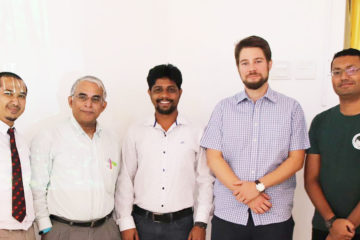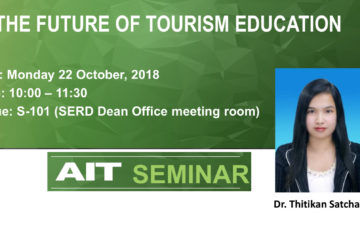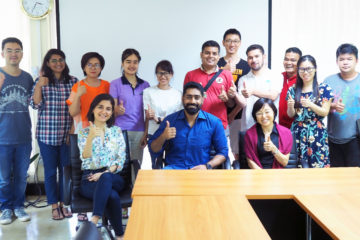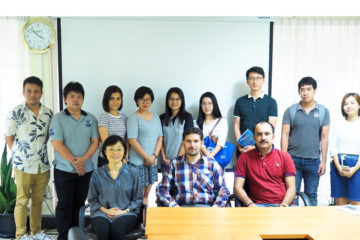AIT Seminar
THE FUTURE OF TOURISM EDUCATION

Dr. Thitikan Satchabut
Date: Monday 22 October, 2018
Time: 10:00– 11:30
Venue: S-101 (SERD Dean Office meeting room)
Abstract
Expansion of tourism industry has brought benefits to the country’s economics both locally and nationally. Furthermore, tourism growth influences the development of more tourism degree programs worldwide. In tourism-dependent country like Thailand, higher education institutions are competing in promoting their tourism-related programs in the education market. Indeed, many tourism programs are being offered popularly in public and private institutions. The marketing campaign to attract new students become intense. While the competition is high, the challenge becomes worse with the news predicting education disruption in Thai society. Various scholars and education-based organizations are alerting educators for changes. This special talk will address some of these issues with its center on tourism education. It will also offer some ideas that tourism programs and other fields can adapt to possibly survive before becoming endangered.
(more…)




